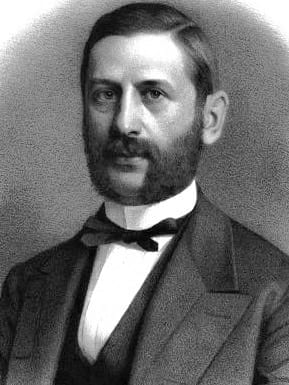
Karl Westphal
Karl Westphal: Pioneering Insights into OCD and Mental Health
Karl Westphal (1833-1890) was a distinguished German neurologist and psychiatrist whose groundbreaking work in the 19th century laid the foundation for our understanding of various mental disorders, including Obsessive-Compulsive Disorder (OCD). Through meticulous clinical observation and innovative theories, Westphal made significant contributions to the field of psychiatry, leaving a lasting legacy that continues to influence modern approaches to mental health.
Early Life and Education
Karl Westphal was born on April 27, 1833, in Magdeburg, Germany. He studied medicine at the University of Berlin, where he was deeply influenced by prominent figures in psychiatry such as Wilhelm Griesinger and Carl Wernicke. These early exposures shaped Westphal’s career and ignited his passion for understanding the intricacies of the human mind.
Contributions to Psychiatry
- Differentiating Obsessive-Compulsive Disorder (OCD): One of Westphal’s most significant contributions was his work on OCD. In 1877, he published a seminal paper titled “Obsessional Insanity,” where he presented detailed case studies and clinical observations of patients exhibiting obsessive thoughts and compulsive behaviors. Westphal’s meticulous descriptions paved the way for the recognition of OCD as a distinct mental disorder.
- Psychogenic Paralysis: Westphal also made notable contributions to the understanding of psychogenic paralysis, a condition characterized by motor dysfunction without apparent organic causes. Through his research, he emphasized the role of psychological factors in the manifestation of physical symptoms, challenging prevailing medical dogma of his time.
- Studies on Hysteria: Building upon the work of his mentor, Carl Wernicke, Westphal delved into the complexities of hysteria. He conducted extensive studies on patients with hysterical symptoms, providing valuable insights into the psychosomatic nature of these disorders. His investigations helped demystify the elusive nature of hysteria and paved the way for more holistic approaches to treatment.
Legacy and Impact
Karl Westphal’s pioneering insights into OCD and various mental health conditions continue to resonate in modern psychiatry. His emphasis on careful clinical observation and his recognition of the interplay between psychological and physiological factors remain fundamental to contemporary approaches to mental health diagnosis and treatment.
Westphal’s work also challenged the prevailing notions of his time, paving the way for a more empathetic and holistic understanding of mental disorders. By recognizing the significance of psychosocial factors in the development and course of psychiatric conditions, Westphal contributed to a paradigm shift in the field of psychiatry.
Karl Westphal’s legacy endures through his pioneering work in the field of psychiatry, particularly his contributions to our understanding of OCD and related disorders. His dedication to meticulous clinical observation, coupled with his innovative theories, revolutionized the way mental health conditions were conceptualized and treated. Today, Westphal’s influence continues to shape the practice of psychiatry, serving as a testament to his enduring impact on the field of mental health.
